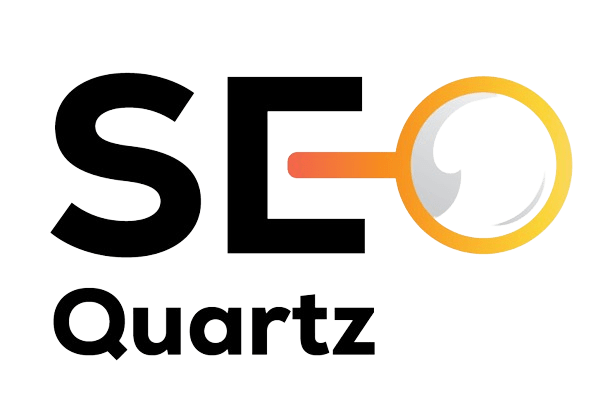How SEO Services Can Help Your Business Grow in 2026
How to Dominate Hyper-Local SEO in 2025: A Step-by-Step Guide for Small Businesses
As digital landscapes evolve, hyper-local SEO is no longer a nice-to-have; it’s essential for small businesses that want to outshine nearby competitors. In 2025, Google and other platforms will continue to refine local search algorithms, making it critical for brands to show up at the right place and time — especially when users search “near me” or “best [service] in [city].”
In this guide, SEO Quartz walks you through how to dominate hyper-local SEO in 2025 and grow your small business online block by block.
What Is Hyper-Local SEO in 2025?
Hyper-local SEO is a targeted strategy that focuses on optimizing your online presence for specific neighborhoods, streets, or even landmarks. While traditional local SEO targets cities or regions, hyper-local SEO zooms in on ultra-specific geographies.
Why It Matters More in 2025:
- Voice search and AI-powered assistants deliver hyper-local results.
- Search Generative Experience (SGE) and AI summaries pull content from businesses that show strong local relevance.
- Increased competition for limited top spots in Google’s local pack (the map + 3 listings).
Step-by-Step Guide to Winning Hyper-Local SEO
Claim and Optimize Your Google Business Profile (GBP)
A fully optimized GBP remains the backbone of hyper-local search.
Checklist:
- Use your actual business name (no keyword stuffing)
- Add accurate address, service areas, phone number, and hours
- Upload high-quality photos weekly
- Use local keywords in your description
- Collect and respond to reviews regularly
Create Location-Specific Landing Pages
Build dedicated pages for each neighborhood or district you serve.
Example: If you’re a bakery in Miami, you should have separate pages for “Little Havana,” “Wynwood,” and “Brickell.”
Tips:
- Include neighborhood names in headers (H1, H2)
- Mention local landmarks or events
- Embed Google Maps for the specific location
Use Hyper-Local Keywords Strategically
Incorporate terms people use to search in their area.
Examples:
- “Plumber near Hollywood Blvd Los Angeles”
- “Best vegan cafe in Mission District SF”
Use tools like Google Search Console, GMB insights, or local keyword tools to find what’s trending nearby.
Get Listed in Local Directories & Citations
Accurate NAP (Name, Address, Phone) info across platforms helps search engines trust your location data.
Recommended platforms:
- Yelp
- Apple Maps
- Bing Places
- Local Chamber of Commerce directories
- Industry-specific sites (like Houzz for home services)
Earn Reviews from Local Customers
Online reviews carry major local SEO weight.
Encourage customers to mention:
- Specific neighborhoods or areas in their reviews
- Services they used
- Personal experiences with your staff
Bonus: Responding to reviews with keywords and location names boosts your ranking in local packs.
Leverage Social Proof on Local Platforms
Stay active on platforms like Facebook Local, Nextdoor, and community-based forums.
Tips:
- Share behind-the-scenes local content
- Use location tags in posts
- Partner with nearby influencers or micro-creators
Create Locally Relevant Blog Content
Don’t just blog about your services — blog about your community.
Post ideas:
- “Top 5 Family-Friendly Spots in [Neighborhood]”
- “How We Supported [Local Event] in [Year]”
- “[Service] Tips for [Local Weather/Condition] in [City]”
These hyper-specific posts help your business stay visible in long-tail search results.
Use Structured Data and Local Schema Markup
Tell search engines exactly where you are and what you do.
Add structured data for:
- Business type
- Address & contact info
- Opening hours
- Service areas
This enhances visibility in rich results and AI-powered summaries.
Track & Measure Local Performance
Tools like:
- Google Search Console – check queries by region
- Google Business Insights – track impressions, calls, and directions
- SEO Quartz Tools – for real-time hyper-local rankings and GMB health checks
Benefits of Hyper-Local SEO for Small Businesses in 2025
- Immediate Visibility: Appear in “near me” searches and voice-based queries
- Higher Conversions: People close to your business are more likely to take action
- Improved Trust: Reviews and map visibility drive consumer confidence
- Edge Over Chains: Hyper-local SEO levels the playing field with big-box stores
Final Thoughts from SEO Quartz
Hyper-local SEO in 2025 is all about relevance, proximity, and personalization. Small businesses that focus on refining their digital presence by location — block by block — will thrive in their neighborhoods.
At SEO Quartz, we specialize in hyper-local strategies designed to boost visibility and ROI for small businesses across the U.S. Whether you’re a local shop, service provider, or niche brand, our team helps you get found where it matters most — right in your customers’ backyard.
FAQs About Hyper-Local SEO in 2025
Is hyper-local SEO different from local SEO?
Yes. Local SEO targets cities or regions, while hyper-local SEO focuses on smaller geographic zones like neighborhoods or streets.
Does voice search affect hyper-local rankings?
Absolutely. Voice searches often use terms like “near me,” making hyper-local optimization essential.
How long does it take to see results?
Typically, local SEO results can show within 30–90 days depending on competition, content updates, and reviews.
Can SEO Quartz help with multi-location SEO?
Yes. We specialize in creating location-specific SEO plans for businesses with multiple branches or service areas.
 info@seoquartz.co
info@seoquartz.co
 +1 (276) 739-9962
+1 (276) 739-9962











